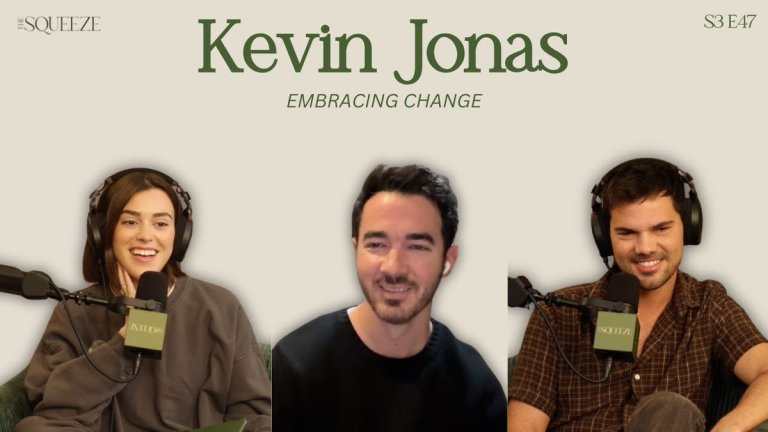
If You Don’t Love What You’re Doing, Do Something Else
“I really wasn’t happy with myself,” he said. “I believe it was because I wasn’t my authentic self doing what I really wanted to do in my life.”
An interview with Scott Steindorff.

The cocaine made his throat close. “I was about to die”.
He wanted to be an actor. He wanted to be creative. He had dreams. And working real-estate for his father wasn’t one of them. “I didn’t want to come down,” he said.
“Why’d you do it?”
“I really wasn’t happy with myself,” he said. “I believe it was because I wasn’t my authentic self doing what I really wanted to do in my life.”
“Nepotism got me the job.”
And it was killing him. He was suffocating.
Now Scott Steindorff is the producer of “Empire Falls,” “Chef,” (one of my all-time favorite movies), “The Lincoln Lawyer,” “Love in the Time of Cholera,” and more.
He’s worked with Paul Newman, Jon Favreau, Robert Downey Jr., Matthew McConaughey, Scarlett Johansson, the list goes on.
The other day he called me, a few days after we shot the project, to tell me about brand new projects he was working on that were different than anything he had done before. He is constantly testing the limits of his creativity.
I wanted to know how he became his “authentic self.” How did he go from being depressed and self-medicated to a successful and happy movie producer?
I wanted to know because I don’t think we ever really know. I think part of self-awareness is never quite getting there but always moving (hopefully) in the right direction. And creativity is something that needs to be constantly reinvented.
Once creativity stays the same, it is no longer creative. Scott found a way to constantly be creativity. I want to learn how.
“It’s not easy at all,” he said. “You have to do the legwork.”
“What’s the leg work?” I asked
Here’s what he said:
Step 1: Find out what you’re craving.
These are the two types of cravings:
1. Depletion: Your body needs something. It can be water, a vitamin or mineral or a change. That’s where reinvention comes in.
2. Addiction: I felt powerless. I was addicted to money. More was never enough. Then I left Wall Street. Because they were the supplier.
Scott wanted euphoria. He craved it.
“I grew up wanting to be a skier and an actor and here I was in an office making money,” Scott said. “I started craving that feeling of euphoria and excitement and passion for life.”
So he started doing cocaine.
“Nobody knew I had a problem,” he said. ” I would do it by myself. So when I checked into rehab, it was a shock to my family.”
The patients had to drink some type of alcohol until they threw up. “By the second day, I said to the doctor, ‘This isn’t working for me. I’m a cocaine addict, not an alcoholic.”
He thought they’d try something new. He thought they’d help.
No.
“Well… leave,” the doctor said.
“There was a shift in my consciousness. I went to my room. I cried uncontrollably for 24 hours. All the stress and pressure left me and from that moment on I haven’t used for almost 33 and a half years.”
“What do you mean the stress left you?” I said. I couldn’t imagine. He told me it just left. No explanation. He just saw his own choice. And he took it.
I think most people don’t know what they really want in life.
We talked about adapting. And I said it seems like you have to surrender and be okay with the changes… even while you’re depressed.
“Isn’t depression a lack of your expression?” he said. I never thought of it that way. Maybe I’m filling one need with sand when I really crave water.
Step 2: Ask questions.
I’m not in a 12-step program, but I want to understand who I am as my authentic self. So I asked what can I do right now?
“Ask yourself questions,” he said. “How Am I feeling? How do I feel about myself, do I love myself, am I feeling less than? Do I feel guilt?”
“But what if you’re lying to yourself?”
“You can’t lie to yourself,” he said. “You’re just denying the truth. If you’re listening to this, it’s coming to the surface. Don’t push it down.”
Step 3: Act it out.
It’s easy to come up with ideas. It’s harder to act on them. I always say, actions are more important than words, which are more important than thoughts.
It’s not about one skill set. It’s about how you meld them together and act on them.
Scott laughed and said, “I have very few skills in life…”
I didn’t quite believe him. He had skills to do real estate. To make movies. To be creative. I have skills.
But we always compare ourselves to what the “next level” is. And I can’t help it. I do it also. So, again, it’s the direction that counts. And fully engaging in the process.
Scott would surrender. If an opportunity presented itself, and it excited his need for creativity, he would say “yes”.
It never hurts to try the next steps in whatever endeavor presents itself. Try it on like you try an outfit to see if you want to wear it for the summer. See if it fits. See if you love it. And if you do, go all in.
Scott’s story is not about movies, or addiction, or creativity, it’s about knowing the right direction to take the next step.
Step 4: Make small changes every day.
Scott quit his dad’s real-estate firm.
“Was he supportive?” I asked.
They didn’t talk for two years…
Scott became a millionaire. He was still in real-estate, though. And unhappy. Then the market crashed.
“It crushed me,” he said.
Scott changed careers every five years or so. Now he’s 56. And he’s working on a Joan of Arc movie, a new TV series based in the Bahamas, and a script for “Station 11.”
Any time he liked a book, he’d try to buy the movie rights. Then he’d try to get the movie made. Sometimes it would work. Sometimes it would be a massive success. But always he tried, starting with the simplest step.
The story he told me was a combination of luck, learning skills, building a network, and acting on the intersection of all of the above. But more than anything, it’s being open to surrender. Surrendering to constant reinvention.
Reinvention is a habit, not an event. ![]()












